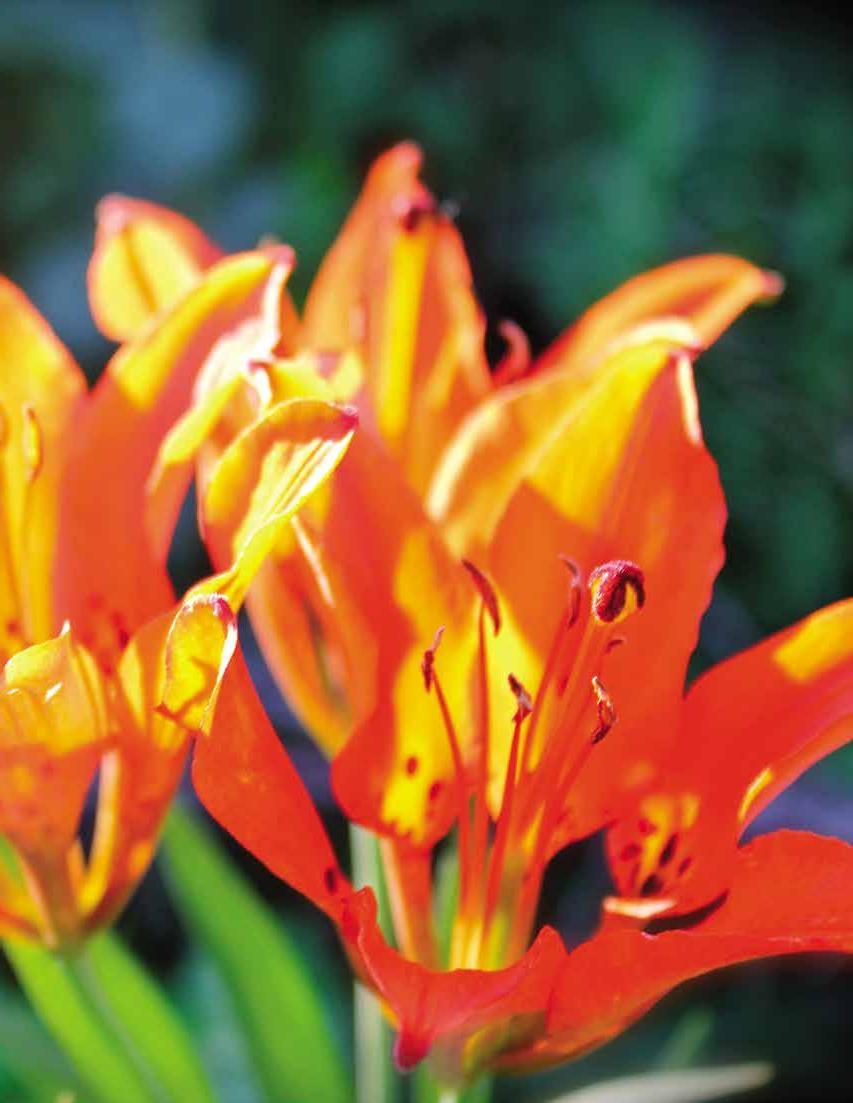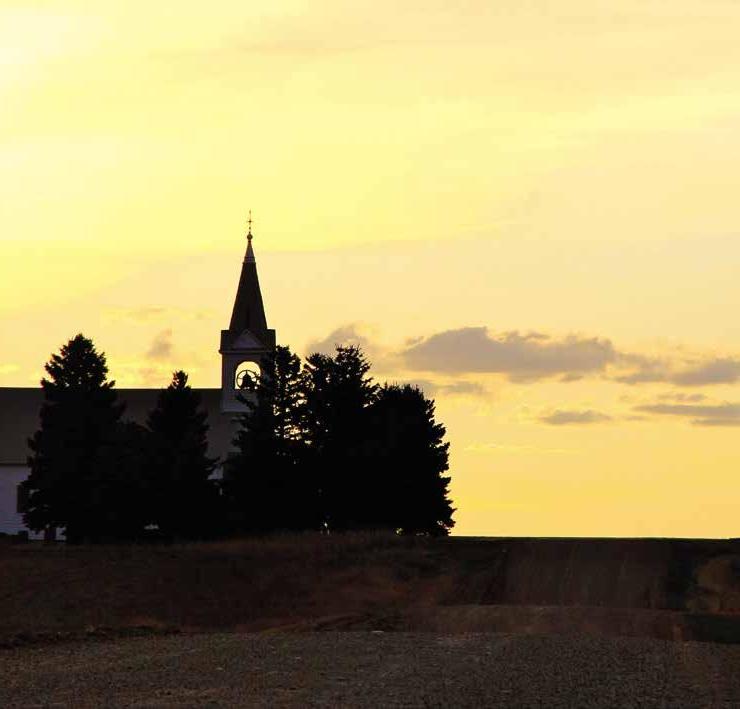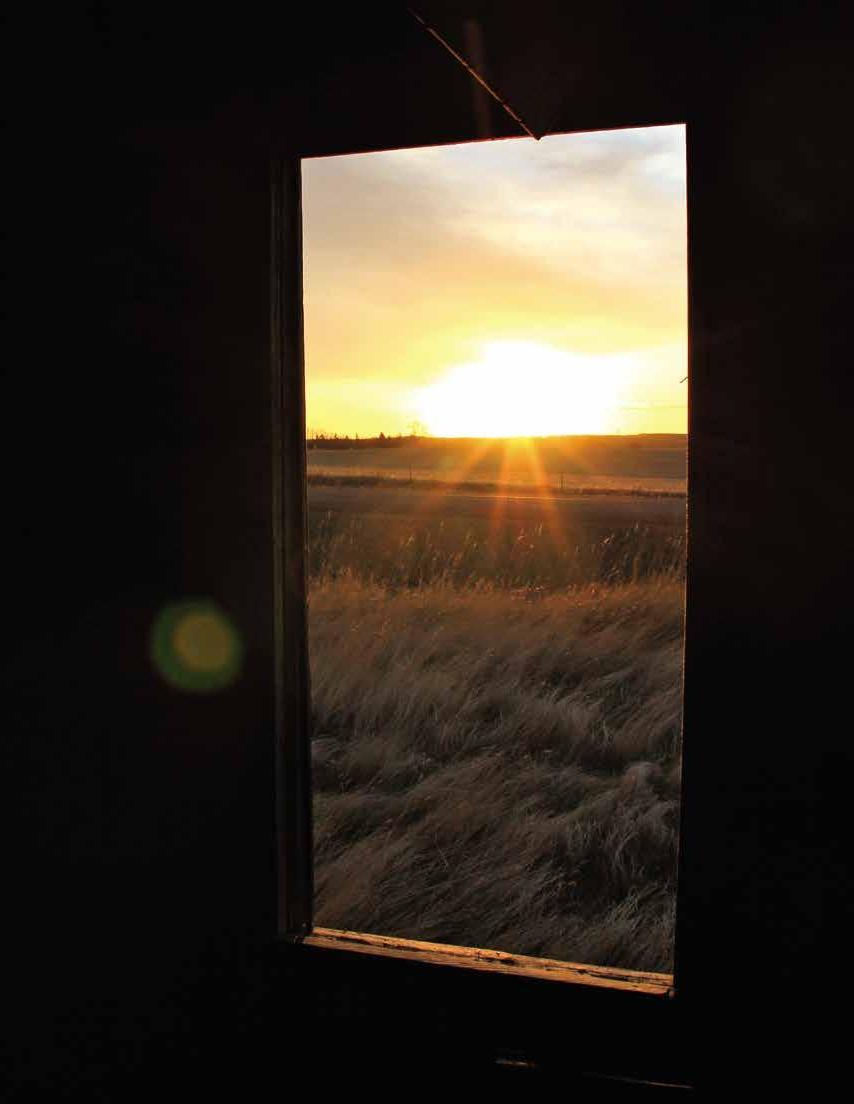
7 minute read
Learning God in North Dakota
By Kate Ruggles
My husband and I have lived in western North Dakota for almost six years, but it was not until I was one month away from the birth of my second child, nearly two years ago, that I began to accept and even embrace all that life had to offer. Before that point I was very scientific about my North Dakota journey.
Advertisement
“Well, I do not like living here, but it is good, so I will deal with it,” I told myself. Often.
I was numb and not ready to feel, because I still had not worked through the one question that sat in the middle of my chest—why did God send me to a place that I did not want to be?
A year after we moved to North Dakota, my husband had just completed an internship at a church in Williston, a small city by my standards, and took over a church in Watford City, a small city by anyone’s standards. When people found out we were moving there, they would get excited.
“Watford is an awesome city!” one person told us. “It is a progressive little town and way better than Williston.”
It was like dabbing iodine on a deep cut and a part of me wanted to hit them. But since I was working hard to keep my cuts hidden, my only response to statements like that was, “thank you.”
I told my husband a while ago that I was okay with being a pastor’s wife and that I would support him pursuing a career in ministry. But once it was staring me in the face, at a small church in a small town, I was scared, angry and I felt alone. I struggled with feelings and thoughts that were not very spiritual and wondered what was wrong with me that I could not get myself together.
On the one hand, the community was great. I found myself among people who truly understood the value of what their hands produced. They were descendants of pioneers who planted by hand in the summer and hunkered down in a homestead shack in the winter. They endured The Great Depression, or what they call ‘the dirty thirties,’ they lasted through two fizzled-out oil booms and they were thankful for every day they were given.
I fell in love with them, and yet I did not want to be there. I was two people and I hated it.
In the meantime, two things happened—oil activity exploded and I had my first child. Perhaps the boom made being a first-time mom seem more intense or being a first-time mom made the boom seem more intense. Either way, all I knew was that everyone was out of breath. And so was I. Overnight, the intoxicating calm of Watford City was replaced by the sound of oil activity and all that came with it—trucks, traffic, noise and people. A lot of people. They needed things, and sometimes they needed the same things that I did.
It was hard, not just because the same town that serviced the needs of less than 2,000 people was now being asked to service the needs of 6,000 to 8,000 people, but because on top of all the incoming needs, I still had my needs. I was still looking for answers in the midst of having to give answers and I was still looking for peace in the midst of so much unrest. And now, I had a child to attend to, a family to take care of and responsibilities that had not gone away because the boom had arrived.
The boom didn’t care if we were tired or had other plans. It was here and it was powerful. In an instant, I saw people that worked hard their whole lives, work even harder. With their heads down and their shoulders square, in the dead of winter, they met the boom head-on. They had no other choice and neither did I. So, with my first child in arms, I followed suit.
I fought for my child to see the doctor, even though there were no open appointments until tomorrow. I rushed for a parking spot at the grocery store, because there were only eight of them and I did not want to carry my child, with blankets piled high on top of her car seat, across the street to get groceries. Then have to carry them out, grocery bags hanging off one arm, my child’s still awkward car seat hanging off the other.
My daycare was 10 miles out of town. Before the boom, I drove it with no problem, because I loved her and loved the way she took care of my baby. After the boom, however, it became an exhausting process of bundling my baby up and driving in and out of town behind semis and white oilfield pickups. Every day seemed to add 50 new vehicles and it was clear by the way they were driving that they were not hauling the precious cargo that I was.
At first I thought the intensity would subside. Then, when there were no available doctor appointments until next week and the street was the best spot I could find for the grocery store, I realized that I did not know what intensity was.
A while ago, God gave me a promise. It was a promise that he was going to do something new and I took it to mean that he was going to do something new where we used to live. But I was wrong.
About a month before my second child was born, I began to realize that I was a part of something new. People were moving from all over the world in search of a new life, and they were moving to western North Dakota because they thought they could find it there. They lived in campers and man camps, or they slept in their vehicles. They came ahead of their families to scope out what the area had to offer, and whether it was really as good as they had heard.
Part of my struggle in living in this place was the fact that I wanted to stay where I was and see God work there. Where I felt that God had failed, I finally started to understand that he had actually delivered beyond his promise.
See, life in the oil boom of western North Dakota is not easy. And people who come discover that really quickly. They discover that they either have what it takes to make it out here, or they do not. If they make it, then on top of finding a new life, they find what they are made of. They become a part of a warm, hard-working, tight-knit community, they find a place to raise their kids, and some even find redemption, freedom from their past, and God.
I often tell people that when God called us to North Dakota it blew up anything I thought I knew about him. I discovered that that was the point. I found out what I was capable of and I found out who God was.
Life in Watford City is still difficult on many levels. More resources have rolled in, but people have too. Housing is still expensive and hard to come by, as is land, and we are never quite sure how long a new thing, whether it be service, business or person, is going to last.
“Is this place really only open for one hour on Saturday?” stated one newbie at the local post office.
We had been in line for roughly 40 minutes and I smiled internally as I answered his question with ascent. I remembered thinking the same thing when I first moved to town and there were only 1,800 residents and the wait time was only five minutes.
“That just does not happen in Wisconsin,” he retorted.
As another newbie engaged him, I was thankful to be able to turn away from the conversation. I listened to them complain about this town and compare it to the place they came from, and I wondered if they were going to make it here. If they were going to learn the lessons inherent to life in oil-impacted western North Dakota and if they, too, would someday turn away from their own newbie, reminding themselves of the person they used to be.
I have lived here for almost five years. I bore the brunt of the 2010 oil boom in Watford City, alongside all the other people who lived here when it started and who are still living here now. And as much as I understood why he asked the question, I am not there anymore. My sights are now on the future. My future and the future of the community. And, together with those who call Watford City their home, that is what I will keep my sights on—the future.
Kate Ruggles is a writer for the McKenzie County Farmer in Watford City, N.D. She moved to North Dakota six years ago and this story is her effort to put all that has transpired since that move into words.










